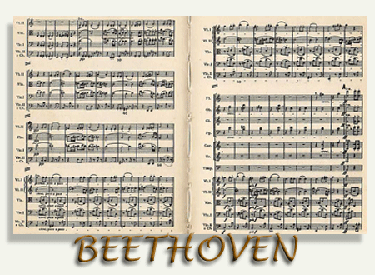by Gary Powell

Copyright law regarding songwriting is written in a way which upsets the balance of musicianship and credentials. You, as a songwriter can be easily compromised by the law lending support for all kinds of pretenders to lay claim to the intellectual property they had little or nothing to do with. For example, a song has three major components: the melody, the lyrics, and the chords under the melody. Chord structure is musically understood as the harmonization of the melody. For every one melody note, there are two handfuls of notes giving the melody its meaning and place. Thus, a melody and lyric can be masterfully harmonized any number of ways to broadly effect their color and tone. In that regard, harmonization plays a compositional role that melody and lyrics cannot alone achieve. Yet, the United States Copyright Office only recognizes melody and lyrics as official parts of a song. Really? That’s right! All those years spent in the study of music theory can be cast off just that easily with one bad law. And whom does this oversight favor? Thanks to the copyright office having been taken hostage, just humming a little ditty with a lyric like “Happy birthday to you” is all it takes to lay legal claim to being a songwriter or even a composer. This favors anyone who has ever hummed a tune, which for the good and the bad of it, is all of us. Professionally, however, composers disaffectionately call these people hummers.
“…one of the criticisms of the current system is that it benefits publishers more than it does creators.” – History of Copyright Law, Wikipedia
In the meantime, answer this question before you start hijacking the credit you don’t deserve: If left alone with only a piano and staff paper, would you be able to deliver a musical composition ready to be played by an orchestra waiting for their parts in the rehearsal hall next door? If not, then you’ll need a team of lost-voices or some very cleverly designed music-making software – of which there is plenty to choose from. But remember, if you can hum or even be in the room when someone else is humming, the the law is on your side. So, what happened to the music itself after the adoption of these copyright laws? Turn on the television or radio and listen, and you’ll immediately know.
Next I’ll be writing about how we are unwittingly supporting a system which progressively lowers the bar for the arts and ultimately in society.
Helpful? Then Copy, Paste and Tweet It:
How Copyright Law Effects Creativity for Songwriters. http://tinyurl.com/7pn5qq
To Learn More, Please Consider These Reference Links:
The Mechanical Elements of a Song
Library of Congress: History’s Wordsmiths
All Content of Gary Powell’s Site is Licensed Under a
Creative Commons Attribution-NonCommercial-NoDerivs 2.5 License

.
by Gary Powell

Copyright law regarding songwriting is written in a way which upsets the balance of musicianship and credentials. You, as a songwriter can be easily compromised by the law lending support for all kinds of pretenders to lay claim to the intellectual property they had little or nothing to do with. For example, a song has three major components: the melody, the lyrics, and the chords under the melody. Chord structure is musically understood as the harmonization of the melody. For every one melody note, there are two handfuls of notes giving the melody its meaning and place. Thus, a melody and lyric can be masterfully harmonized any number of ways to broadly effect their color and tone. In that regard, harmonization plays a compositional role that melody and lyrics cannot alone achieve. Yet, the United States Copyright Office only recognizes melody and lyrics as official parts of a song. Really? That’s right! All those years spent in the study of music theory can be cast off just that easily with one bad law. And whom does this oversight favor? Thanks to the copyright office having been taken hostage, just humming a little ditty with a lyric like “Happy birthday to you” is all it takes to lay legal claim to being a songwriter or even a composer. This favors anyone who has ever hummed a tune, which for the good and the bad of it, is all of us. Professionally, however, composers disaffectionately call these people hummers.
“…one of the criticisms of the current system is that it benefits publishers more than it does creators.” – History of Copyright Law, Wikipedia
In the meantime, answer this question before you start hijacking the credit you don’t deserve: If left alone with only a piano and staff paper, would you be able to deliver a musical composition ready to be played by an orchestra waiting for their parts in the rehearsal hall next door? If not, then you’ll need a team of lost-voices or some very cleverly designed music-making software – of which there is plenty to choose from. But remember, if you can hum or even be in the room when someone else is humming, the the law is on your side. So, what happened to the music itself after the adoption of these copyright laws? Turn on the television or radio and listen, and you’ll immediately know.
Next I’ll be writing about how we are unwittingly supporting a system which progressively lowers the bar for the arts and ultimately in society.
Helpful? Then Copy, Paste and Tweet It:
How Copyright Law Effects Creativity for Songwriters. http://tinyurl.com/7pn5qq
To Learn More, Please Consider These Reference Links:
The Mechanical Elements of a Song
Library of Congress: History’s Wordsmiths
All Content of Gary Powell’s Site is Licensed Under a
Creative Commons Attribution-NonCommercial-NoDerivs 2.5 License

.

